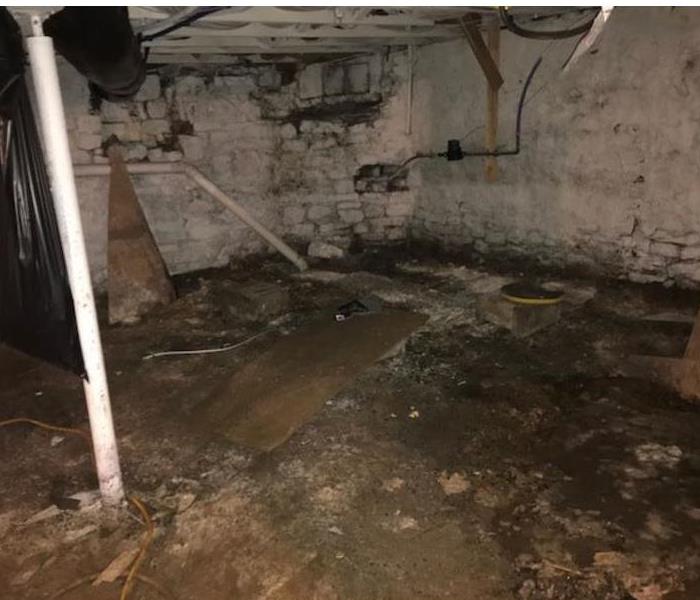What to do after a Sewage Backup in Hyde Park,Ma
3/5/2019 (Permalink)
What to Do After Sewage Backup
There are certain important precautionary measures to take after a sewage backup in order to prevent the damage from spreading:
- Keep children and pets away from the affected area;
- Put on appropriate protective equipment – rubber gloves, rubber boots, impervious coveralls, protective eye wear, and a face mask;
- Switch off the electrical power to your home (only if the distribution panel is safely above water). Wear rubber gloves and use a dry wooden stick to shut off the main switch;
- Turn off any running water and don’t use the water supply system in your home (it may even be a good idea to turn off the water supply to the building);
- Open doors and windows to allow fresh air inside (do not use the central air conditioning system to ventilate your home as sewage-contaminated dust and water droplets can enter the HVAC system and contaminate it);
- Take any dry, un-contaminated items away from the affected area;
- Add small amounts of chlorine bleach to standing water to ensure some disinfection;
- Notify your insurance company that there has been a sewage spill in your home;
- Contact your municipal authority or sewage department (if your home is connected to a public sewer) or your local health department (if your home is connected to a private septic system) and ask for advice;
- Call a professional water damage restoration company SERVPRO of Milton/Braintree. The quick and efficient intervention of the experienced technicians will save you a lot of time and effort and will provide the most appropriate, safest, and cost-effective solution to the problem. Besides, most sewage cleanup companies offer not only water extraction, but also quality repair works, odor removal, and content cleanup, so you will have all the aspects of the restoration process taken care of when using SERVPRO of Milton/Braintree
Good to remember:
- Take pictures of the sewage spill and the water-damaged items and structural materials before removing them or having anything cleaned up (the photographs will serve as proof for your insurance claim). Keep all the receipts for materials and replacements, as well as for the repair and cleaning works performed in your home;
- Do not use harsh chemicals to unclog the draining system as they can cause severe damage to the pipes and sewer lines. Opt for treatment methods that use enzymes instead of chemicals or call a plumber to fix the source of the problem;
- Take appropriate measures to prevent cross-contamination (keep the doors between the contaminated area and the other rooms in your home closed, do not use the central air conditioning system until the problem has been solved, keep air pressure in the contaminated area lower than in the rest of the building, etc.) to ensure that sewage contaminated soil won’t be tracked into unaffected areas of your property and airborne sewage-contaminated dust (or mold spores) won’t be blown to other spaces.






 24/7 Emergency Service
24/7 Emergency Service
